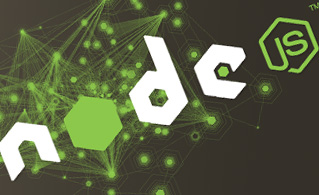Advanced Features
The Advanced tab gives you fast access to a set of advanced tools, among them the Memcached distributed memory object caching system and the Varnish Cache web application accelerator, which will help you optimize your web sites and applications without needing to leave the Control Panel. Depending on the website hosting package, these features are either added by default or are available in the form of easily gettable upgrades. InnoDB and NodeJS support is offered as well.

Varnish
Varnish Cache is a web application accelerator also famous as a caching HTTP reverse proxy. You can install it in front of any server that speaks the HTTP protocol and configure it to cache the contents. Varnish Cache is very, very fast and will increase your website's loading speed. One of the major advantages of Varnish Cache is the flexibility of its principal configuration mechanism, VCL, which permits you to determine how incoming requests should be tackled.

Memcached
Memcached is a general-purpose distributed memory object caching system for increasing the load speed of dynamic database-powered web sites. It is used to lower the number of times an external data source (such as a DB or API) is read by caching data and objects in RAM. The Memcached distributed memory caching system uses a two-tier architecture. The Memcached system is employed by some of the most regularly visited web sites on the web and is supported by famous Content Management Systems like Joomla and WordPress.

Node.js
Node.js is a software system for building highly scalable Internet apps. Written in JavaScript, Node.js uses an event-driven, non-blocking I/O model that makes it lightweight and efficient, great for high-performance content-rich Internet apps. Node.js uses Google's V8 JavaScript engine, libUV, and a number of in-built libraries.
InnoDB
InnoDB is the default storage engine for the MySQL open-source RDBMS. A storage engine is the underlying software component that a DBMS uses to create, read, modify and delete data from a database. The latest release of InnoDB features significant improvements in efficiency, security and usability. InnoDB offers the standard ACID transaction properties, along with declarative referential integrity support. It is included as standard in most binaries distributed by MySQL AB.
| SHARED HOSTING | KVM VPS | OPENVZ VPS | SEMI-DEDICATED PLANS | DEDICATED SERVERS |
| Unlimited storage | 20 GB storage | 20 GB storage | Unlimited storage | 240 GB storage |
| Unlimited bandwidth | 1 TB bandwidth | 1 TB bandwidth | Unlimited bandwidth | 10 TB bandwidth |
| 1 website hosted | Unlimited websites hosted | Unlimited websites hosted | Unlimited websites hosted | Unlimited websites hosted |
| 30-Day Free Trial | 24/7/365 support | 24/7/365 support | 30-Day Free Trial | 24/7/365 support |
| start from $3.83/mo | start from $3.00/mo | start from $6.00/mo | start from $20.00/mo | start from $36.00/mo |